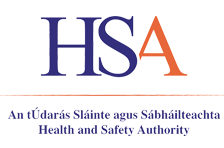What to do if You Feel You are Being Bullied
What does ‘feeling bullied' mean?
- Feeling put upon?
- Unfairly treated?
- Hurt?
You are not necessarily being targeted or being bullied just because you feel any or all of the above.
When we feel bad, we see events less clearly. We can be biased and blame others.
Because we feel vulnerable, we might misinterpret reasonable behaviour for something else, something targeted against us personally. Think about this possibility.
What to do?
First of all, assess what is happening objectively.
Try to avoid assuming everything done to you by a person has the same motive. Try not to connect a sequence of events which may not be connected.
- Read up on the topic and try to be clear – what policies are in place.
- Is the behaviour upsetting you due to other or personal reasons?
- Is the criticism warranted, for instance is work-related non-performance the issue
- Is it a personality ‘clash’? Are you both just spoiling for conflict?
- Is it a repeated pattern of behaviour, picking you out, offensively?
If you agree with the last bullet above, you may be the target of bullying and you can take some action.
- Approach the person and point out the behaviour(s). Say it’s hostile and offensive.
- Clearly state to them that you wish them to stop as you would like a good working relationship with them.
- If you are too frightened to do this, make a brief note of the behaviour and its effects and seek out someone to bring the matter to - someone in HR, a manager or a representative.
*Remember - to accuse someone of bullying is a serious thing and so should only be done carefully and with a reliable set of circumstances indicating that the bullying is occurring.
Keep confidentiality; there are consequences for defaming or libelling a person.
Gathering evidence
Once you have formed the opinion that you are being bullied, keep copies of any relevant materials (notes, emails etc)
Then seek out your organisation’s Anti Bullying Policy and follow its guidelines.
- Report the matter to someone in a HR or management position or to a Contact Person, if these exist within your workplace.
- The matter should be dealt with as early as possible so hostilities don’t grow, and preferably at first it should be dealt with informally, with the aim or resolving and stopping the activities, and moving on.
- If this is not successful, mediation may be required. While both parties must agree in order for any mediation to be successful, it is a very important step and should not be dismissed out of hand. Skilled professional mediation should be used.
- Finally, if other attempts to satisfy the situation fail, a formal investigation of the facts may be required. Guidance for investigations can be found in our Code of Practice for Employers and Employees on the Prevention and Resolution of Bullying at Work 2021
Alternatively, or simultaneously, you can seek advice by contacting the following:
(1) HSA Contact Centre at the HSA: Telephone: 0818 289 389 or email: contactus@hsa.ie
If the problem at your workplace is the lack of an adequate policy on bullying you may register a complaint with our Contact Centre. When we get it, we will contact your employer by letter asking for their anti-bullying policy. We will send this to you. This can be done without your employer knowing who you are.
You can see for yourself, then the procedures in the policy and raise your particular problem with your employer. The policy should provide for prompt, fair, confidential and effective resolution.
The HSA is not in a position to get involved in mediating or investigating your bullying complaint but we can use our statutory powers to ensure that:
- A suitable policy is in place
- Complaints are investigated in accordance with the terms set out in the policy, in line with the Duty of Care of employers with regard to Section 8 2. A and b of the 2005 Act.(link to section please)
(2) Workplace Relations Commission (WRC) Tel: (059) 9178990 or Lo-Call: 0818 80 80 90
A number of individual bullying grievances have been dealt with through mediation by the Advisory Development and Research Services over the past number of years.
The Adjudication Service also deal with such disputes – they are independent adjudicators and they investigate disputes referred to them by individuals or small groups of workers under specific legislation. Their findings are issued to the parties in the form of non-binding recommendations. This service deals with the vast majority of issues around bullying.
If you feel that, because you raised a bullying issue, you are then penalised at work, you should take this matter, through Section 27 of the HS&W at Work Act 2005, to the RC service.
Contact the Workplace Relations Commission for information on employment legislation on Tel: (059) 9178990 or Lo-Call: 0818 80 80 90 or email them at customerservice@workplacerelations.ie.
In the case of a possible unfair dismissal,(including Constructive Dismissal) this information would include informing the person where to go to receive advice (e.g. a Citizen's Information Centre or a solicitor) and also information on how to take a case either to The Adjudication Service or to the WRC as above.
The Employment Equality Act, 1998 and Equal Status legislation outlaw discrimination in employment, vocational training, advertising, collective agreements, the provision of goods and services and other opportunities to which the public generally have access on nine distinct grounds. The Irish human Rights and Equality Commission oversees this area. Irish Human Rights and Equality Commission (IHRC)
- Gender
- Marital status
- Family status
- Sexual orientation
- Religion
- Age
- Disability
- Race
- Membership of the traveller community

